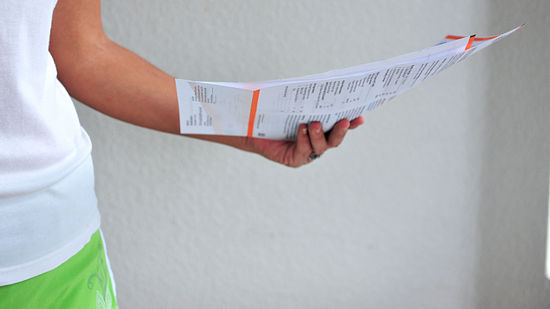Five simple steps to reduce your electricity bill
You know how it is. The envelope falls onto the mat. You reach for it…
You know how it is. The envelope falls onto the mat. You reach for it with trembling hands, take a deep breath and prepare for the worst. Yes, that’s right. It’s the electricity bill! But it doesn’t have to be as bad as that, because you can reduce your electricity use considerably by following a few simple tips.
Switch it off
If you aren’t using something, then switch it off. So, if you leave a room and there’s nobody else in it, turn off the light; if you aren’t watching the television, don’t just leave it on standby, because that can add a significant percentage to your electricity bill; as much as 16 per cent of the money you’re spending on electricity could be saved by switching off appliances instead of switching them to standby.
Buy better bulbs
In addition to switching off lights when they’re not being used, a good way to save energy is to replace any old-fashioned incandescent bulbs with more environmentally friendly, energy-efficient ones, which cost more to buy but will save you money over longer periods. If you have several light fittings that use high-energy halogen bulbs, you could replace them with LED lights without loss of performance and this could literally save you hundreds of pounds each year because of the high cost of running halogen lamps.

Washing waste
When you use a washing machine, make sure you have put in the full amount of clothes allowed by the manufacturer before you switch it on, or you will end up doing too many washes. If you need to do a smaller wash, see if your machine has a ‘half-load’ programme which uses less water and saves electricity. Additionally, when the washing is finished, do you automatically put it straight into a dryer? If so, you could be missing the opportunity to make a big saving by hanging it outside instead, because appliances with a heating element use a large amount of energy. If you don’t have an outdoor drying space or if the weather is simply too bad, you could fit a retractable clothes line over your bath or stand a maiden somewhere out of the way.
Dealing with dishes
Like the washing machine, a dishwasher can be very wasteful if it doesn’t have a full load. To make the best use of it, always make sure you have scraped off any loose food, so you don’t end up having to wash some items again; for the same reason, put taller items near the back and sides of the bottom rack, with cups, small dishes and glasses on the top rack. With this correct loading pattern, you are less likely to have to redo any dishes. But if you really want to be energy-efficient, you would be better off getting rid of the dishwasher altogether or only using it in emergencies, such as after a dinner party or at Christmas. Washing your dishes by hand uses much less energy than using a dishwasher and can, therefore, save you a lot of money over the course of a year.
Little things add up
When you’re trying to save on energy, there are lots of little things you can do that add up to lower electricity use, which is as good as shaving pounds from all your electricity prices. For instance, if you wash your hair a little earlier, you’ll have time to let it dry naturally or if you hang shirts or dresses on a hanger to dry, you may not need to iron them. Do you boil extra water for no reason when you make a drink? If you do, then stop it! With a little thought and effort, you could cut your energy bills and help reduce carbon emissions at the same time, so you might as well start now!




